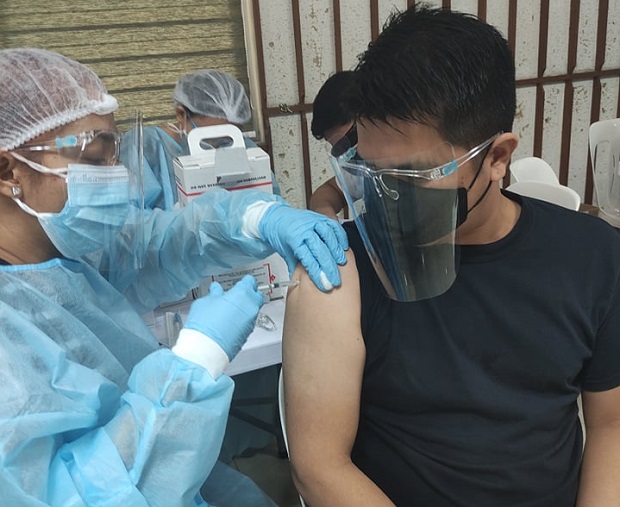Sen. Leila M. de Lima has filed a Senate Resolution urging the Department of Information and Communications Technology (DICT) to fast track the development of a national vaccine database of Covid-19 vaccines in the country as a standard measure to verify proof of inoculation.

In Senate Resolution No. 857 she filed last Aug. 17, De Lima said the DICT, in coordination with the Department of Health (DOH) and local government units (LGUs), must urgently act on national vaccinee database to avoid falsification and ensure that Overseas Filipino Workers (OFWs) will not face further challenges when traveling.
“The absence of a central and national database and system of releasing of vaccination cards by LGUs, which do not have a uniform design, contributes to the challenge of efficiently identifying authentic vaccination cards and confirming if an individual has been really inoculated with Covid-19 vaccines,” she said.
“While there have been several efforts to improve the security features of LGU-issued vaccination cards by several local chief executives, the lack of a standard verification system in place continues to make vaccination cards even more susceptible to counterfeiting or illegal replication,” she added.
But the DICT said the portal and mobile app for issuing vaccination certificates called “VaxCertPH” is ready to go live nationwide after training of LGU operators in the next few weeks.
As the government rolled out its vaccination program, De Lima said health experts, LGUs, and law enforcement entities have expressed concern on the capacity of the government to verify the validity of vaccination cards due to the unavailability of a central repository or database of vaccinated persons.
For one, the Muntinlupa City government received reports of alleged faking and selling of fake vaccination cards in numerous computer shops in the city.
“It was ‘chaotic’ for LGUs, as they had to create their own style. It is further claimed that DICT’s supposed task of issuing digital vaccination cards remained as a mere ‘plan’. To date, each city in Metro Manila has its own designs and styles of vaccination card,” De Lima noted.
Department of Foreign Affairs (DFA) secretary Teodoro Locsin Jr., meanwhile, recently announced that Hong Kong is not accepting the country’s locally issued vaccination cards because “they are not connected to a single source,” leaving OFWs working in Hong Kong stranded as they wait for the government to meet the requirements of Hong Kong.
Additionally, an individual who has received two full doses of the Covid-19 vaccine in Mandaluyong City attempted and successfully received his third or booster shot in Quezon City last Aug. 13.
“The said breach in the approved protocol on the allowed number of Covid-19 jabs proves that there are serious challenges in validating and ensuring that all individuals are following the existing policies on the administration of Covid-19 vaccines in the country,” she said.
The lawmaker said the development of a national database of Covid-19 vaccination will comprehensively address the legitimate concerns and issues that put into question the standards and capacity to guarantee and certify that all vaccinated persons in the country are authentically inoculated.
“This apparent gap between what is required by law and what is happening before our eyes will create a major backlog and more problems in the near future as more Filipinos are beginning to travel abroad for work,” she said.
“The availability of a centralized database of Covid-19 vaccinations will allow law enforcement units to efficiently identify and verify truthfulness of presented vaccination cards, discourage and apprehend individuals who are faking said documents, and sustain the progress and efforts that the government has made in the vaccination program,” she added.




